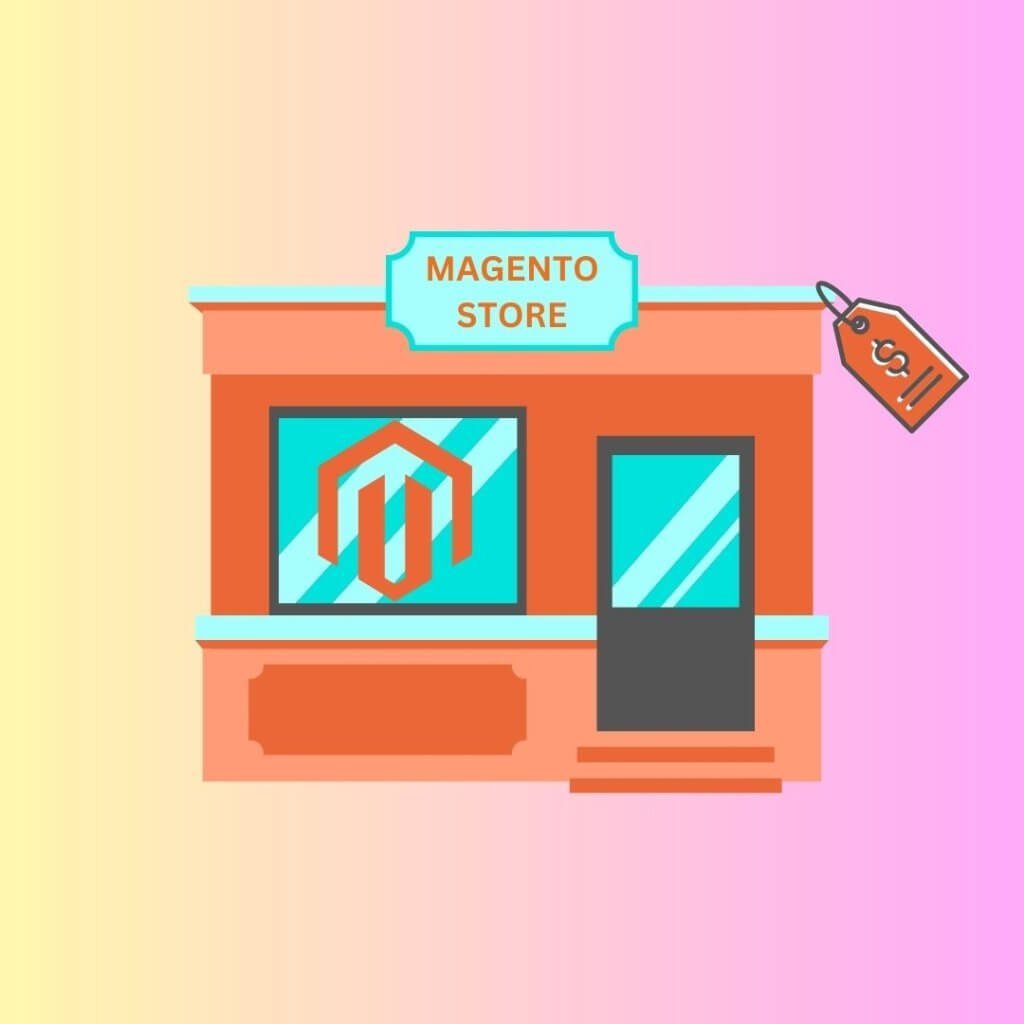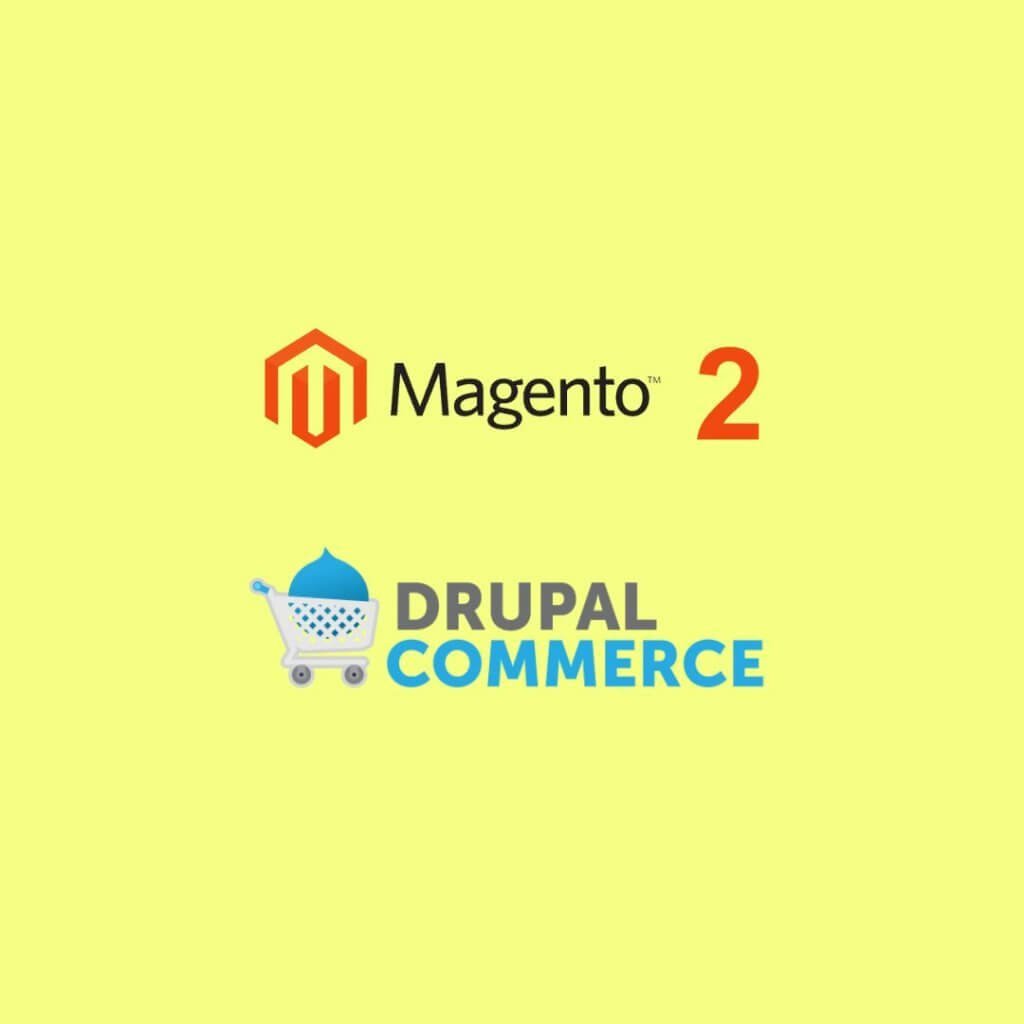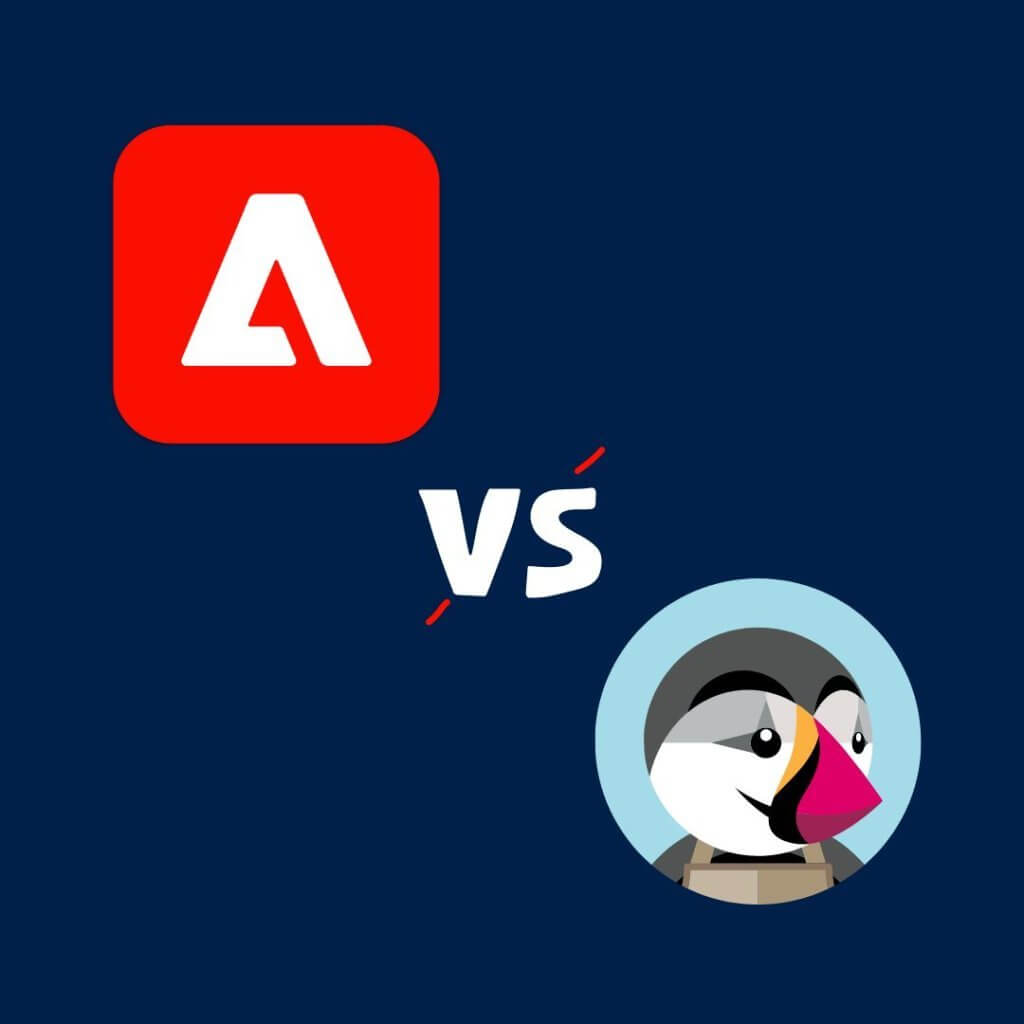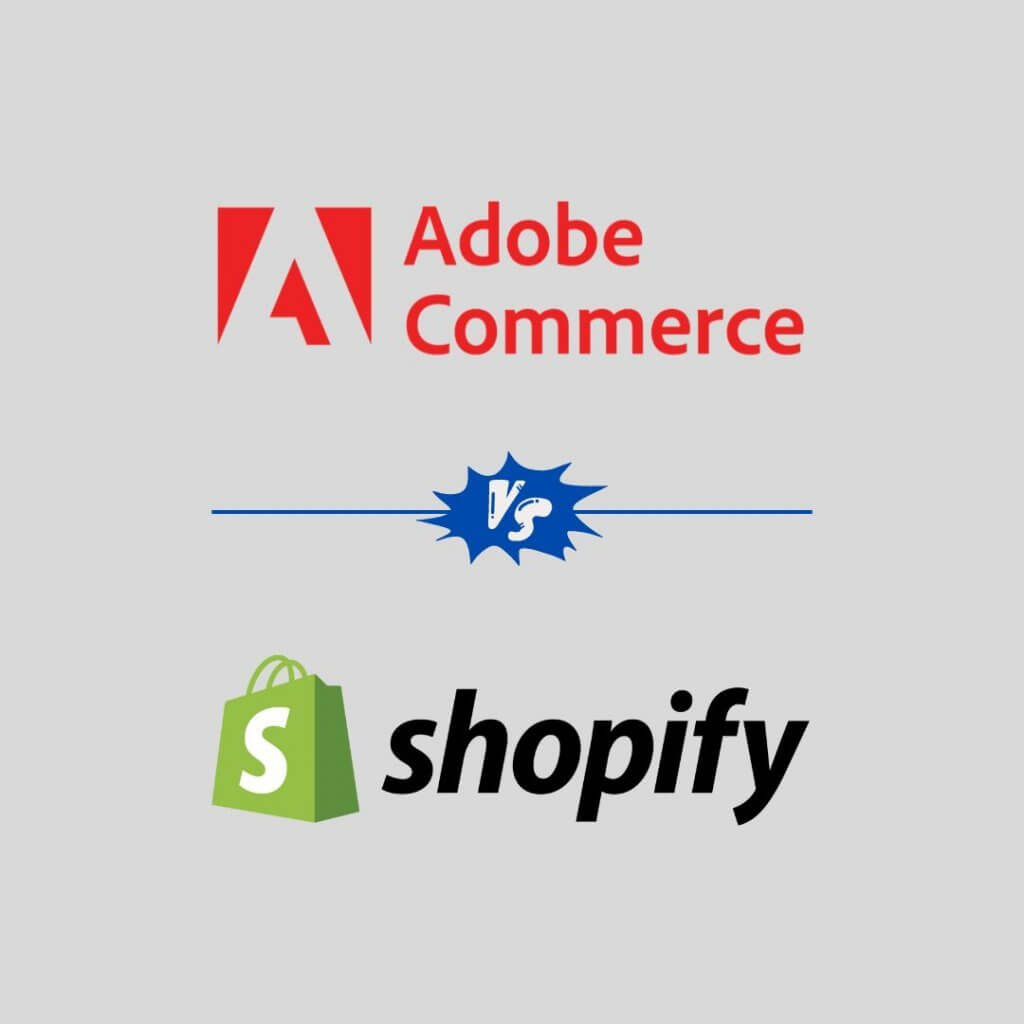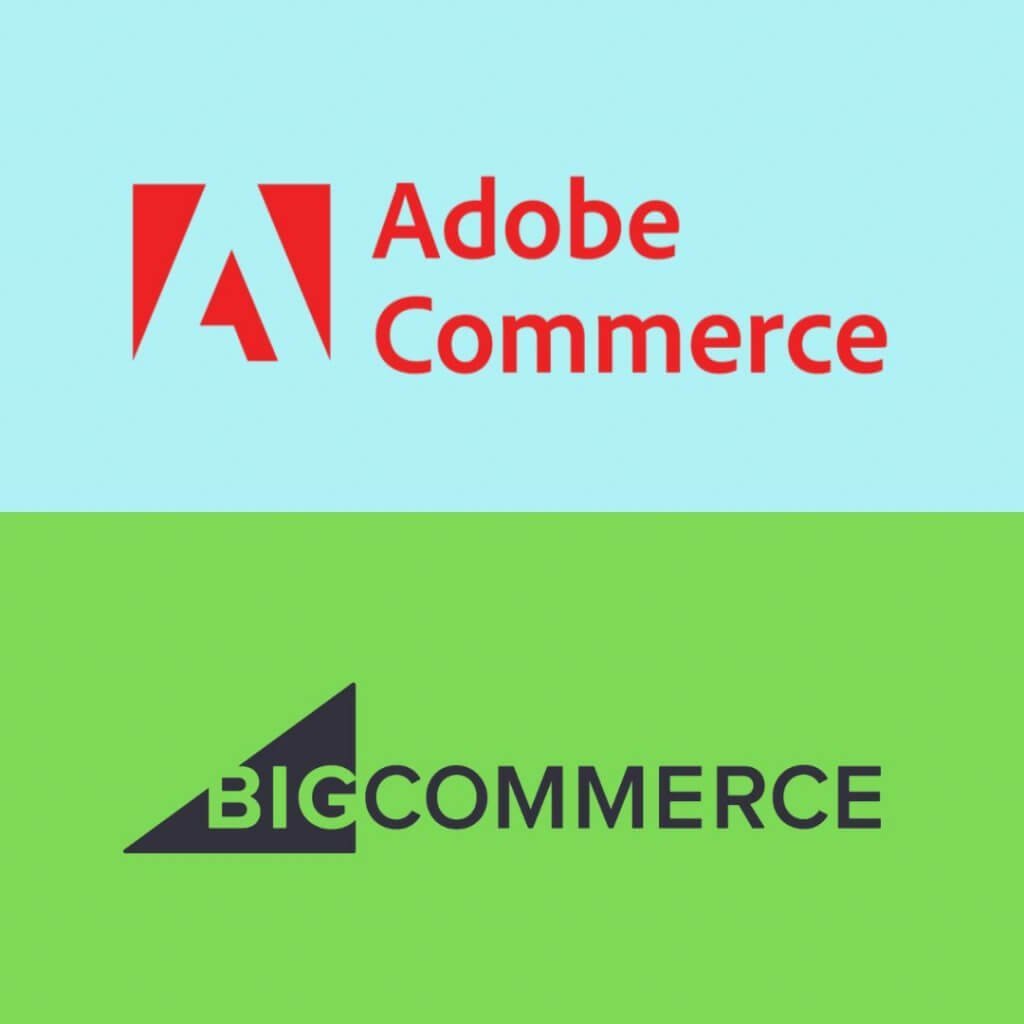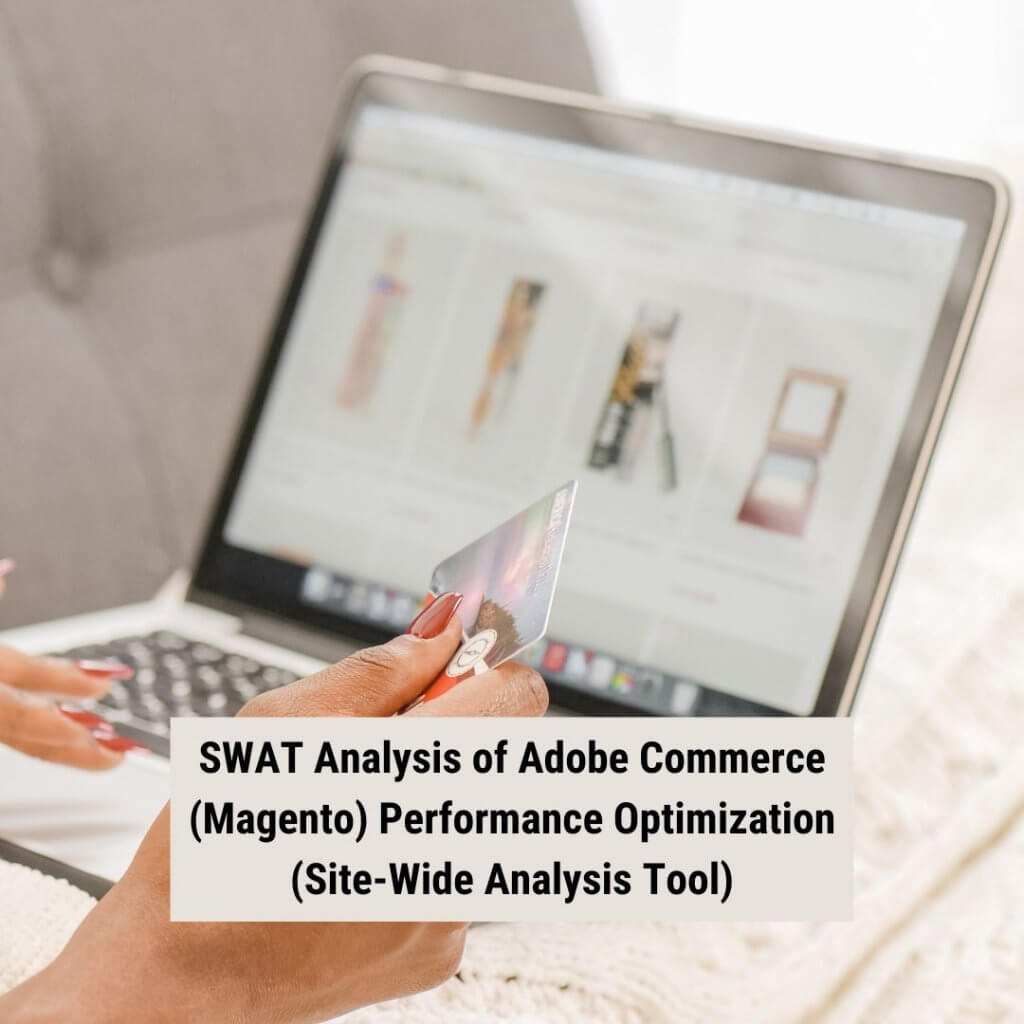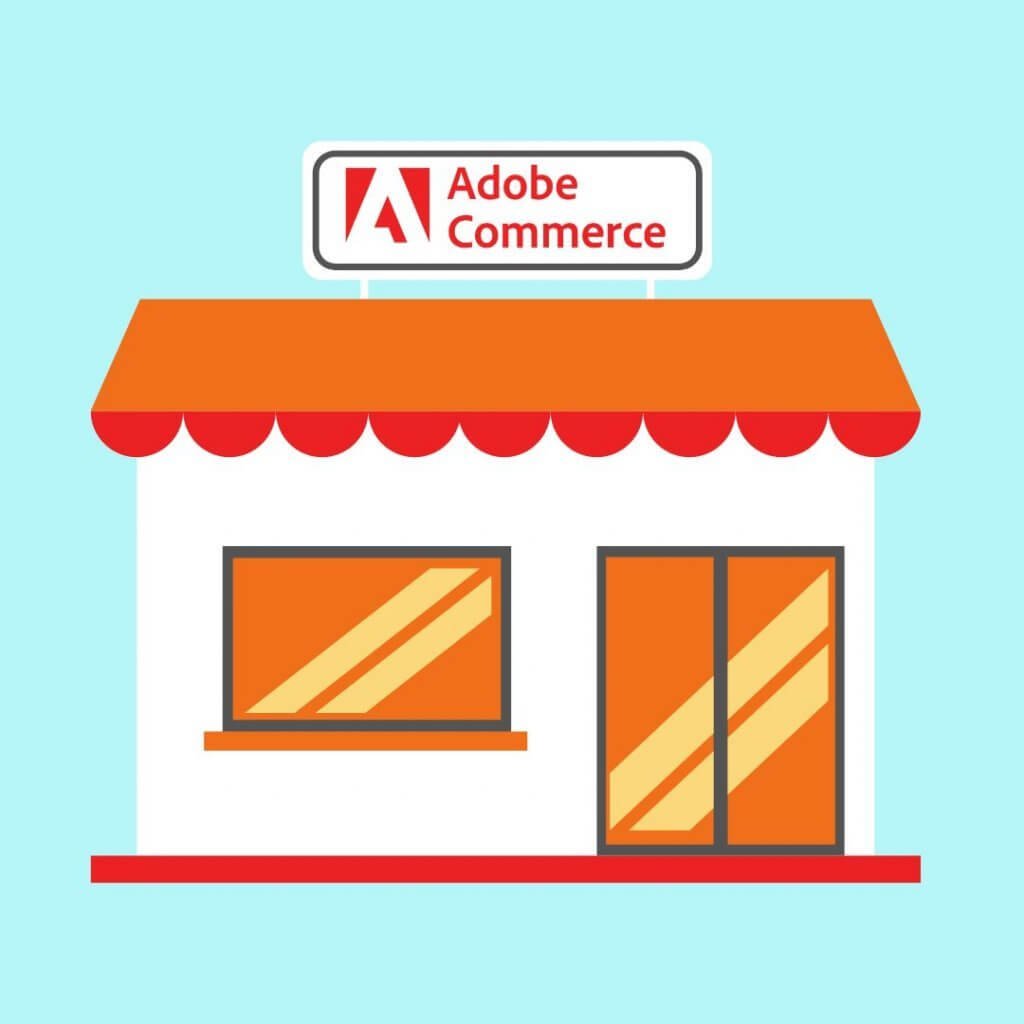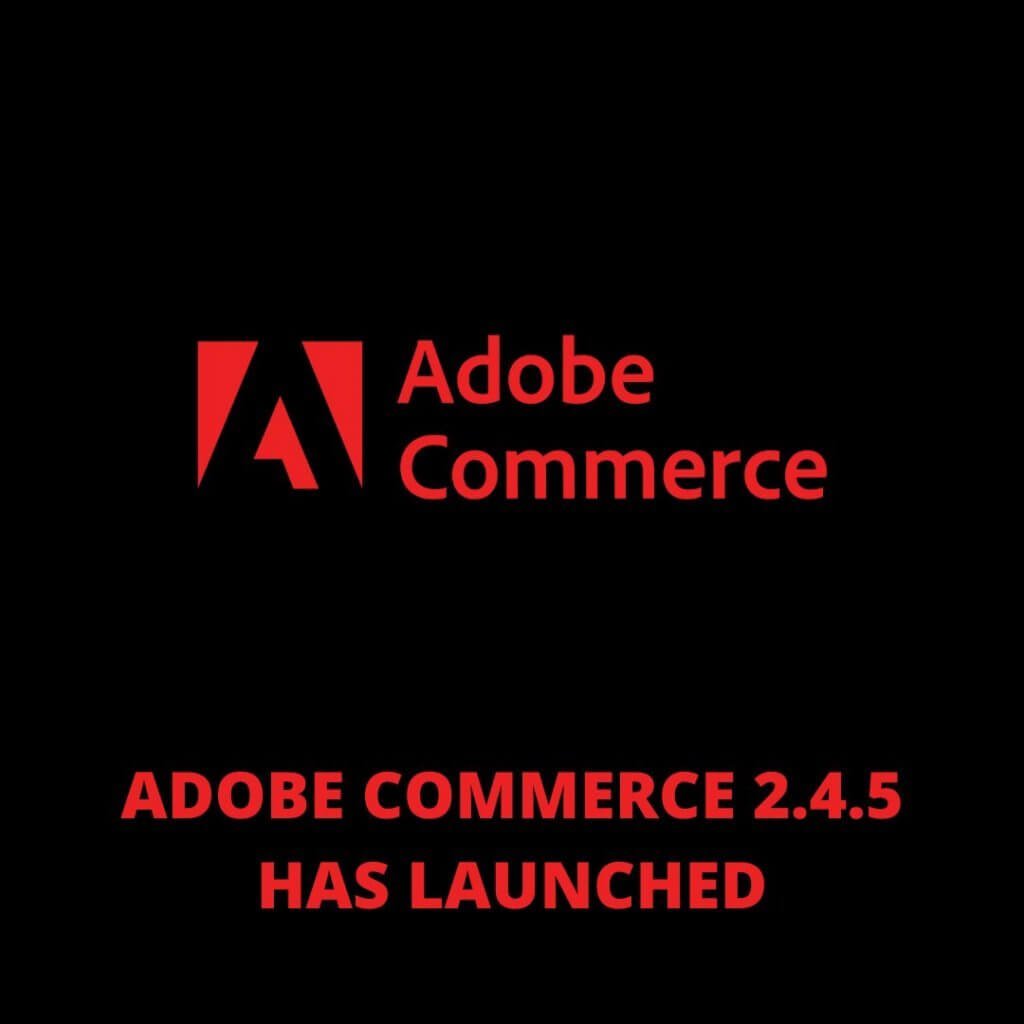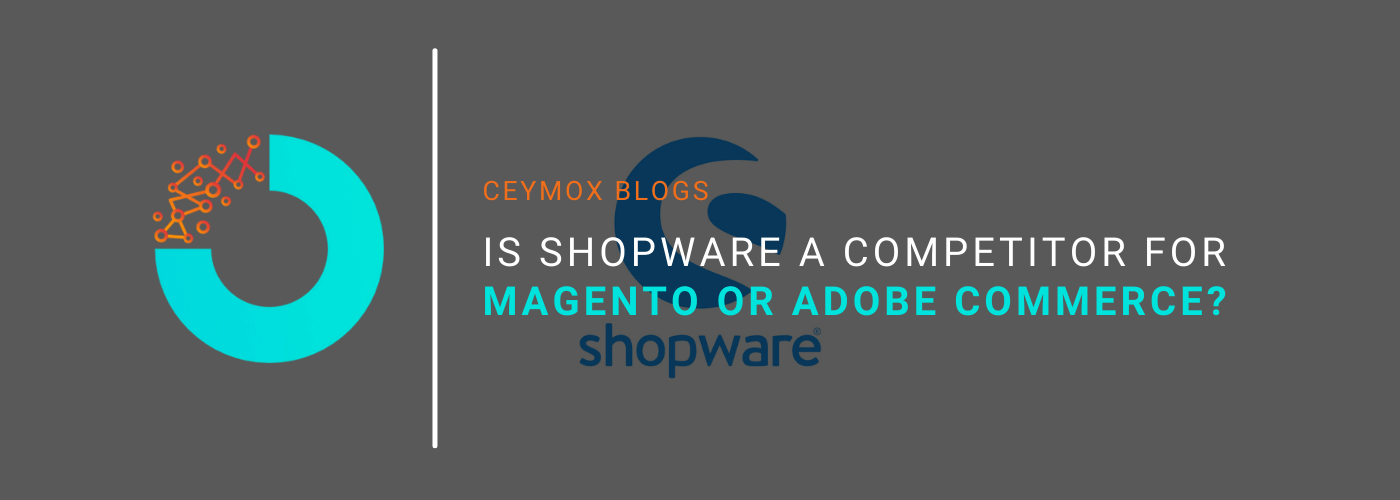
As we are passing through the 3rd year of the 3rd decade of the 21st century, we are witnessing continuous change in the global business industry which has already started shifting from the traditional way of selling items to selling electronically or e-commerce. There have been multiple factors which have driven this change, let alone COVID-19 acting as a catalyst, while the other factors can be selling your offerings every second to the buyers and less operational costs in comparison to running a brick-and-mortar store. The development of e-commerce stores is already on pace since last decade, and now the established stores are on steady growth of sales and revenue. With this rise in the e-commerce industry, several e-commerce platforms have gained popularity and are now competing with each other. Two such platforms are Magento (Adobe Commerce) and Shopware. In this article, we will compare these two platforms and identify whether Shopware is giving tough competition to Magento or not in different aspects such as features, pricing, support, etc.
To give you a brief: Shopware is quite an old e-commerce platform which was founded in 2000 and has a good presence in European and mostly German-speaking countries. On the other side, Magento is a renowned e-commerce platform on the global level. Despite being the 12th most used e-commerce technology in the US, it is highly popular with big, worldwide brands. It is also the 3rd most used platform within the top 1 million sites and the top 2 in the top 10k sites.
Magento:

If you are planning to step in or are already a part of the e-commerce industry, then you must have heard the term “Magento” earlier. Magento was founded in 2008 by Roy Rubin and Yoav Kutner and has witnessed continuous growth since then. It comes in three different editions: Magento Open Source, Adobe Commerce (formerly known as Magento), and Adobe Commerce Cloud.
The Magento Open Source is a free edition with limited features, the Adobe Commerce is the paid edition with extensive features set, and the Adobe Commerce Cloud is an enterprise-level edition with unlimited features.
Shopware:

Shopware has maintained its presence in the e-commerce industry for more than two decades. It was founded in 2000 in Germany as an open-source project. Initially, it was having a great presence in Germany, but now it is gaining popularity across the globe.
The latest version of Shopware is 6.5.3 and it receives updates on a regular basis. Although it has quite a lower market share in the e-commerce world which is nearly 2%, it is having a huge market share in the German-speaking countries which is 28%. Germany alone is contributing 90% of the Shopware market, and the rest 10% is being contributed by other European countries.
Now we will compare both these platforms in different attributes.
1. Popularity & Market Share:
Magento is the e-commerce backend for more than 250,000 stores across the world and has a clientele of premium brands like Coca-Cola, Nike, Ford, and many other big brands. However, its patrons are not limited to big brands medium to small companies also rely on Magento and Adobe Commerce.
Shopware has a longer but not-so-bright history. Initially, it was only available in Germany and after the launch of Shopware 6, it started growing in the international market. However, the focus of Shopware still lies in DACH countries (German, Switzerland, Austria). Some of the bigger clients of Shopware are Aston Martin, L’Oreal, Phillips, etc.
The community size also has a bigger role in determining popularity, especially if we are considering open-source platforms. There are nearly 40,000 members in the Shopware community while the Magento community consists of more than 100,000 members.
Overall, Magento is more popular among different website categories.
2. Pricing:
Price is an important consideration while selecting a backend e-commerce platform for your business. There are many differences in the pricing structure of Magento and Shopware that you should be known about.
In Magento, there are 3 different versions available: Magento Open-Source, Adobe Commerce, and Adobe Commerce Cloud.
Magento Open Source:
Magento Open Source is free to use and install. However, only the platform is free and you have to pay for hosting, domain, security, and any 3rd party extension that you may require for extended functionality.
Adobe Commerce:
Mostly used by medium to large scale businesses, the pricing of Adobe Commerce is based on your yearly gross revenue. There is no fixed calculation process shared by the company, thus, you have to contact their sales team to get the exact quote. Still, sometimes it offers discounts for new clients and the payment can be done in monthly instalments instead of a yearly payment. In comparison to Magento Open Source, it has a huge pack of features, better security, PCI compliance, and B2B features as well.
Adobe Commerce Cloud:
This is the enterprise-level edition of Magento. Apart from all the features of Adobe Commerce, you get the hosting service by Adobe in Adobe Commerce Cloud. It would be a great choice if you want an all-in-one package. This is also the most expensive offering of Magento.
This table shows some approximation figures of cost of Adobe Commerce and Adobe Commerce Cloud:

There are also 3 editions in the Shopware which are: Rise, Evolve, and Beyond.
Shopware Rise:
The Shopware Rise edition is free to start. You can quickly launch your e-commerce site using this solution. Although, it is free you have to make payments to Shopware as soon as you start making your first sales. Since it is free, it has limited capabilities and is good for only businesses having a small number of products.
Shopware Evolve:
This is the paid edition of Shopware with much more advanced features like marketing, customer experience tools, and B2B features. Its price depends on the gross merchandise value (GMV) and other individual factors.
Shopware Beyond:
This is another paid Shopware offering to have the most advanced features for managing returns, customer-specific pricing, store management, and much more. Just like the Evolve edition, its pricing also depends on GMV.
As both Shopware and Magento are available in different editions, it could be difficult to compare in pricing. Thus, we will discuss them in the article’s following section.
3. User-friendly:
Magento is renowned for its plethora of features and custom modules. That’s why it is quite a complex platform with a steep learning curve. You must require a Magento developer to fulfil your requirements. That’s why, it is best to hire a Magento development agency like Ceymox Technologies, who can set up your Magento store to meet all your requirements and business needs, be user-friendly and fast.
After the setup, there are straightforward daily operations of Magento. The admin panel is quite user-friendly to manage the content of your website. In Adobe Commerce, you could simply create a new page by using the drag-and-drop feature in the Page Builder.
Shopware, on the other side, has a very user-friendly interface. Its drag-and-drop and double-click functionality makes it very easy to use for even non-technical users. However, it may take time to initially configure the website and the integration of 3rd party extensions and solutions may require the help of Shopware experts.
4. Features and Functionality:
Functionality and features are the core USPs of both these platforms. It is possible to create new modules, add new features, or customize the existing ones. There are thousands of extensions available on the marketplaces of both Magento and Shopware which are free as well as paid.
As the target audience of Shopware was the German market, most of its extensions are in German and require translation to English which may become an issue for non-German online retailers.
In terms of in-built functionality, Magento or Adobe Commerce is packed with a huge number of features. These features give merchants the flexibility to sell across B2B, B2C, B2B2C, C2C, D2C, and other business models. Popular native features in Adobe Commerce are Page Builder, workflows, segmentation, and personalization. It is also possible to create loyalty and reward programs and use the product recommendation in-built functionality and a multisite setup.
The most prominent features of Magento or Adobe Commerce are:
- Advanced Product and Category Management
- Shipping & Tax Options
- In-built support for digital marketing and SEO
- Support for multiple currencies, multiple languages, and multi-payment options
- Easy to integrate with 3rd party extensions or modules
- Support different product types like digital products, bundle products, and configurable products
- AI built reporting and analytical features
- Customizable checkout and shopping cart
Apart from the existing features, the merchants can also create their custom functionality from scratch with the help of a Magento development team.
There are also a plethora of features in Shopware which include personalization, segmentation of customers, promotion, loyalty points, and others. In the paid edition, you will get a certain level of B2B e-commerce functionalities.
However, the core USP of Shopware lies in its B2C selling which is focused on customer experience first. It is more aligned for small to medium-scale sellers as its B2B functionality is limited comparable with Adobe Commerce.
Some of the prominent features of Shopware are:
- Easy product and inventory management
- Support for multi-language and multi-currency
- Basic digital marketing and SEO capabilities
- Multiple shipping and tax options
- Reliable integration with 3rd party payment gateways
- Customizable checkout along with shopping cart
- ERP and CRM easy integration
- Basic reporting and analytics
Shopware doesn’t have a bulk products uploading feature which is a necessity for many businesses. Magento has this functionality. In Shopware, you have to create a spreadsheet of the products, update information, and then load the information into the system.
5. Performance:
The speed of e-commerce really matters! Today’s customers will leave your website if it takes more than 2 seconds to load.
While comparing the speed of Magento and Shopware, they are on the same level. Still, Shopware is a bit faster than Magento. Although, for any user, this difference isn’t noticeable because the difference is less than one-tenth of a second.
The robust architecture of Magento gives you a free hand to customize and integrate with 3rd party systems. It is easy to manage thousands of products and customers into Magento and its performance doesn’t get affected if there is a sudden influx of traffic on the store.
If you still ever feel that your Magento store is running slow, then you can follow the Magento speed optimization techniques to take it to the green shade of Google Pagespeed insights and other speed-testing tools.
It is also possible to develop a PWA in Magento to deliver rapid results & speed for the mobile users. We use the default PWA developer tool of Magento which makes the results 5-6 times faster than the normal website.
If we take Shopware, it has a very simple architecture and a comparatively smaller codebase. Due to this, it requires fewer resources to run and becomes highly optimized for small to medium-scale businesses.
The speed of the platform gets also affected by how the system makes requests to the server. The Magento API layers employ GraphQL and Shopware uses REST API. Now what happens, is GraphQL requests all the information in a single request, while Shopware REST API sends multiple requests for different pieces of information. So, the difference is negligible in speed when the traffic is low, but as it spikes, Shopware results in slower performance.
6. SEO Capabilities:
There are in-built SEO features available in both Shopware and Magento which improves the ranking of a website in search engines.
Magento has a huge variety of SEO-focused features. To name a few, it has customizable anchor text for navigation links, customizable page titles, customizable H1 tags, canonical URLs to avoid content duplication, CMS for organic link building & traffic, and much more. It also has tools to optimize product listings like meta tags, alt tags, and descriptions. For even more SEO features, there are plenty of extensions available to extend SEO services.
Shopware is packed with limited SEO features in its toolbox. It offers basic capabilities like meta tags customization and URL customization. It lags when it comes to optimizing product listings. If you have given high weightage to SEO, then Shopware can’t be considered a competitor of Magento.
7. Apps & Extension:
In both Magento & Shopware, there will be chances when you will require any out-of-the-box functionality which is not present in the platform. To help with this, the 3rd party extensions are highly reliable.
Shopware has a good community of developers in German-speaking nations, thus you can easily find a lot of modules, extensions, or apps on the Shopware marketplace. But there is an issue. Most of the Shopware extensions come in only German language and the Shopware is Europe-oriented. So it becomes hard to use a plugin.
Currently, there are nearly 3500 extensions available on the Shopware marketplace. All these extensions have been approved by Shopware. The pricing of these extensions lies between €0,00 to € 7,990.00.
In Magento, there are more than 5,000 extensions available for the 250,000 merchants and still counting. A huge portion of these extensions is free of cost. A free extension doesn’t mean that it lacks quality. A good-rated Magento extension will fulfil all the expected requirements.
Apart from the free extensions, the paid extensions lie in the range of $40-$10,000 or even higher depending on your need.
8. Support:
Last but not least, if you get stuck into any issue, you will always want reliable support to help you out. Shopware support is not free of cost and there is a monthly fee associated. Since it is paid, you get good quality support. You will get a technical account manager for general inquiries and Shopware-related issues.
The forum of Shopware is available in German only. Thus, non-German people will find this difficult.
Magento offers highly reliable support. But you don’t get any Magento support for Magento open-source. Customer support is available for only Adobe Commerce and Adobe Commerce Cloud.
So Is Shopware a competitor of Magento?
Shopware and Magento offer a lot to e-commerce businesses and both are powerful e-commerce platforms. But there is a lot which is hidden under the hood.
Magento is offering truly unlimited features with customization capabilities and a huge variety of third-party extensions. It is highly suitable for businesses that are ambitious and have envisioned long-term growth.
Shopware, on the other hand, gives you a quick set-up for your store. It doesn’t require many customizations for set-up and doesn’t have immediate growth plans.
Magento is popular globally, while Shopware has a user base in DACH countries with the restriction of the German language.
Thus, it wouldn’t be wrong that Shopware is competing with Magento as despite having the same objective the methodology and offerings of these two platforms are different. In today’s time, we are connected globally and a globally recognized platform like Magento should be an ideal choice.
Wrapping Up:
In this article, we have understood the different aspects of Magento and Shopware and realized that Shopware is not built for everyone while Magento is.
We at Ceymox Technologies, the best e-commerce development company in India, are having expertise in developing e-commerce stores from scratch. Let us know your requirements.
 Hubspot SEO Certified |  Hubspot SEO II Certified |  Google Ads Search Certified |  Google Analytics Certified |
Sreehari N Kartha is a skilled Digital Marketing Analyst at Ceymox, certified in SEO. His expertise encompasses a wide range of digital marketing strategies, including managing advertising campaigns on platforms like Google Ads, Facebook Ads, Instagram Ads, WhatsApp Ads, and LinkedIn Ads. With a strong foundation in SEO and SMM, Sreehari is adept at optimizing online visibility, driving engagement, and generating qualified leads and conversions. His passion for emerging technologies, such as Crypto, NFTs, and Web3, further complements his skillset, enabling him to navigate the dynamic digital landscape.
View All Articles

